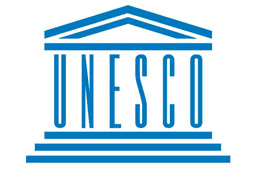Published: 06 Jun 2023 964 views
Since 1967, UNESCO International Literacy Prizes have rewarded excellence and innovation in the field of literacy. 506 projects and programmes undertaken by governments, non-governmental organizations and individuals around the world have been recognized. Through these prestigious Prizes, UNESCO seeks to support effective literacy practices and encourages the promotion of dynamic literate societies.
Currently there are two UNESCO International Literacy Prizes:
The UNESCO King Sejong Literacy Prize (3 awards): Established in 1989, with the support of the Government of the Republic of Korea, it gives special consideration to mother language-based literacy development.Each prizewinner receives a medal, a diploma and US$20.000.
The UNESCO Confucius Prize for Literacy (3 awards): Established in 2005, with the support of the Government of the People’s Republic of China, it gives special consideration functional literacy, leveraging technological environments, in support of adults in rural areas and out-of-school youth.Each prizewinner receives a medal, a diploma and US$30.000.
As in the previous editions, six awards will be granted to individuals or organizations for their outstanding projects that promote literacy learning. For this year, the programmes are requested to reflect around the theme “Promoting literacy for a world in transition: Building the foundation for peaceful and sustainable societies”.
The theme emphasizes how literacy plays a crucial role in empowering individuals and communities to adapt and establish peaceful and sustainable societies, especially during times of change and social, economic, and environmental challenges.
The UNESCO International Literacy Prizes have been acknowledging excellence and innovation in the field of literacy for more than 50 years. To date, over 512 projects and programmes across the globe have been recognized and supported for their exceptional contributions in this area.
UNESCO is the United Nations Educational, Scientific and Cultural Organization. It seeks to build peace through international cooperation in Education, the Sciences and Culture. UNESCO's programmes contribute to the achievement of the Sustainable Development Goals defined in Agenda 2030, adopted by the UN General Assembly in 2015. Political and economic arrangements of governments are not enough to secure the lasting and sincere support of the peoples. Peace must be founded upon dialogue and mutual understanding. Peace must be built upon the intellectual and moral solidarity of humanity. I... continue reading

| Application Deadline | 12 Jul 2023 |
| Type | College School |
| Sponsor | United Nations Educational, Scientific and Cultural Organization (UNESCO) |
| Gender | Men and Women |
For more details,visit UNESCO website